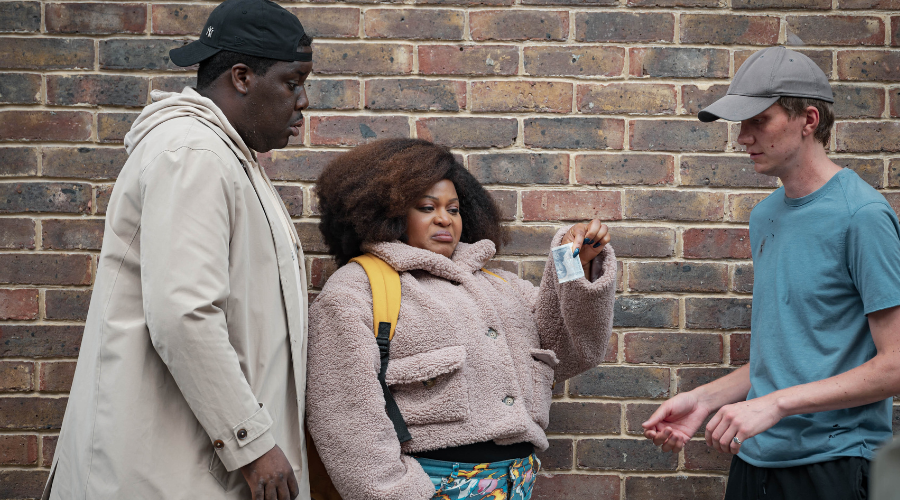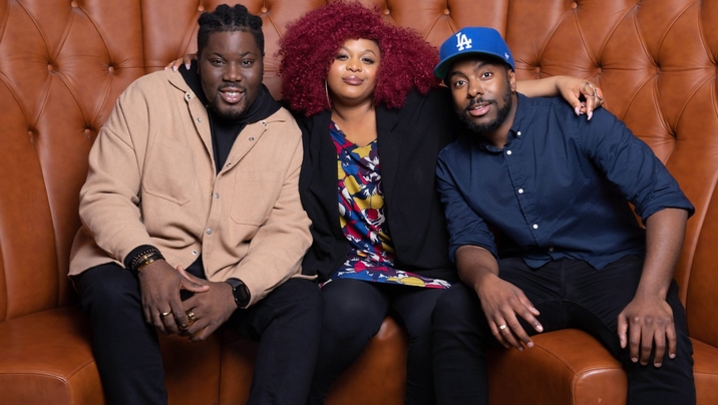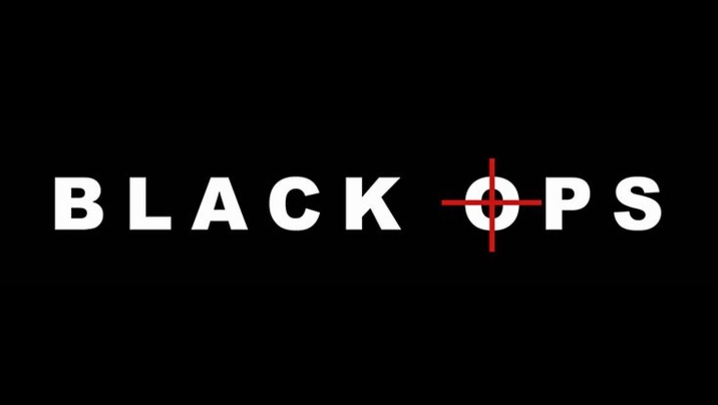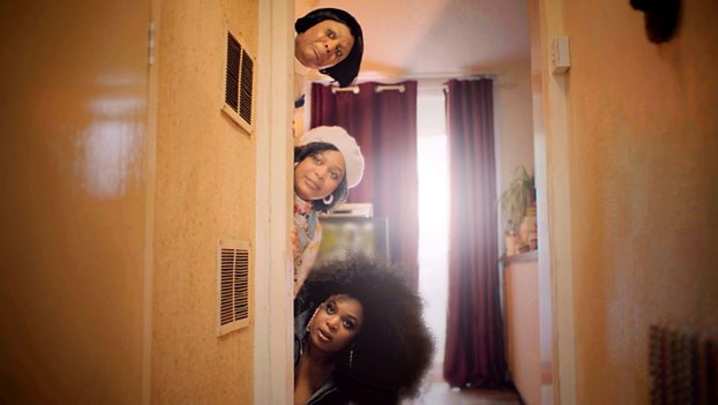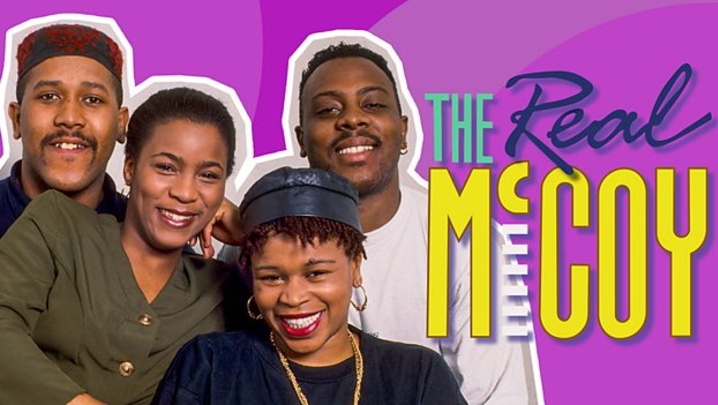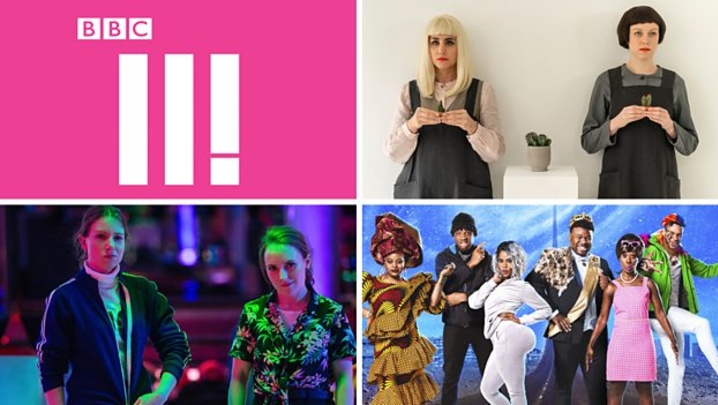Most people are delighted to get the call telling them they’re up for an award. Not Gbemisola Ikumelo.
“What?” she reenacts for me, voice harsh with impatience. “It’s early.”
Don’t be fooled by the deadpan. Once she’s done with the act, she quickly returns to laughing, beaming, “it’s brilliant, such beautiful news.”
The actor’s RTS gong for buddy cop comedy Black Ops could have been for any number of her contributions to the show. Though she won in the Comedy Performance (Female) category, she writes on as well as co-starring in the sitcom, which she co-created with Akemnji Ndifornyen. This was on top of two additional nominations for Writer (Comedy) – shared between the show’s four writers – and Scripted Comedy.
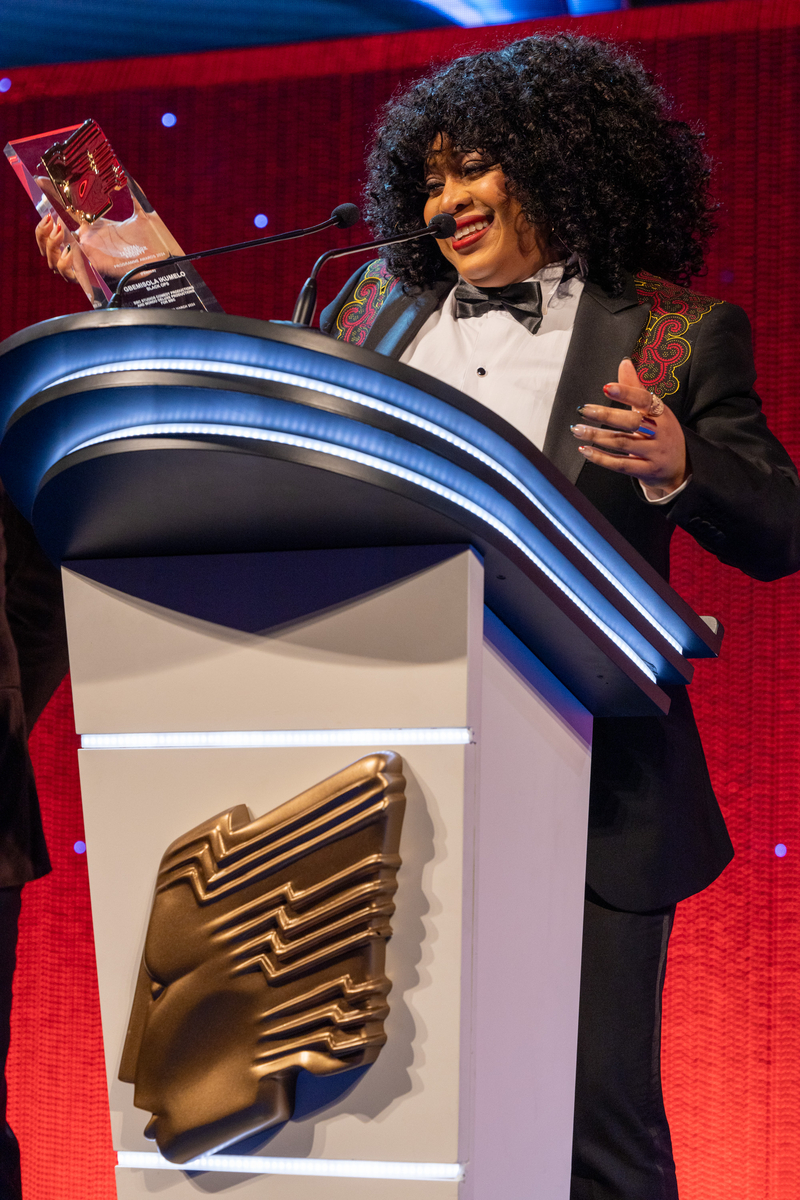
Performance (Female)
(credit: RTS/Paul Hamparsoumian)
The show draws heavily from buddy cop classics: Ikumelo reels off Eddie Murphy gems like Beverley Hills Cop, 48 Hrs. and sequel Another 48 Hrs. Perhaps the aggressively American approach of these movies wouldn’t gel with a sitcom set on a London council estate. Ikumelo begs to differ.
“I think it’s really hilarious when we look at the American buddy cop show through a British lens.”
“We don’t have guns and shoot-em-ups,” she continues. “The bureaucracy feels different.”
She points to a scene in Black Ops where baddie Marcus (played by The Inbetweeners and The Thick Of It alumnus Alex MacQueen) brandishes a gun. So far, so American, until he says – in a thick RP accent – “Don’t think I don’t know how to use it, because I do: I’ve done the course.”
“I feel like that’s quintessentially the difference between an American version of the show and the way Brits would do it,” Ikumelo tells me.
Black Ops shoves main characters Dom and Kay through a Hollywood action movie that neither of them want to watch. Kay is too squeamish, and Dom just wants to go home. When they’re ushered into a car boot at gunpoint, Kay’s only objection is that it looks a bit cramped. When they do get in, they don’t worry about life or death: they worry about farting.
As any industry insider will tell you, the road to getting a sitcom is rarely paved smoothly. Plenty of comics wait their entire careers for a pilot deal that never arrives. Many more find that they can only cannibalise their stand-up act for a series or two before commissioners lose interest, or the gimmick gets old.
Ikumelo is the opposite: she’s never done stand-up (“as of this interview!”), and baulks at being called a comedian. She didn’t even know she could make people laugh until a few years ago.
“The first comedy I ever did was Dane Baptiste’s BBC show Sunny D, and it was the first time someone said ‘you’re funny’.”
She went on to feature in sketch show Famalam, which featured mostly Black British talent. The programme promised “no area of the universe is off limits”, and saw Ikumelo lampoon Afro-Caribbean culture and stereotypes. Notable roles included the African aunty ready to go to war over Tupperware, and the sassy black friend in a romcom who only exists to help the white protagonist.
One of her co-stars on the sketch show was Ndifornyen, who also acted as co-writer, producer, composer and showrunner. They’d worked together before on Sunny D, and amongst a host of talented actors, he singled Ikumelo out as someone who could carry her own show. Famalam’s execs agreed, and encouraged Ndifornyen to see if she had any ideas. It turns out she did, and Black Ops was born.
Ikumelo wasn’t resting on her laurels before comedy. Her first love was theatre, and she tells me that the longer rehearsal period compared to what you typically get on a TV project still appeals. Performing live also provides the opportunity for immediate audience feedback. Perhaps this is also what makes it so intimidating, but not to Ikumelo.
“I know if a joke doesn’t work instantly onstage,” she says. “I might not know that with TV until much later, because sometimes you’re in an echo chamber of people who think you’re funny in that space.”
With TV, it might not click that a wider audience doesn’t agree until the reviews roll in, she continues.
In the case of Black Ops, Ikumelo wasn’t left waiting long. She took home that RTS Programme Award for Comedy Performance (Female), while her co-star, Hammed Animashaun, won the male counterpart award.
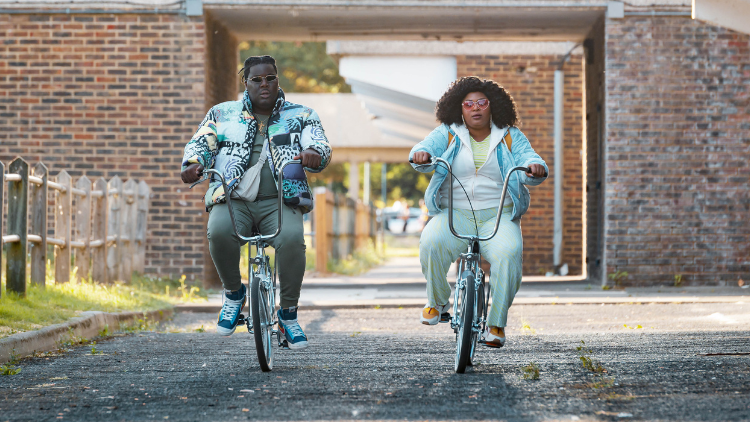
A lot of double acts have the funny one and the straight-laced, dull one. Key to the relationship between Dom and Kay is that they’re both the ridiculous one. Each in the duo are given their moments to shine, to needle out the comedy in each other, and to bicker. As Ikumelo put it at the Programme Awards, “life is imitating art”.
The result is unabashedly silly: sit-downs with shadowy government officials are interrupted by arguments over chips. Jobs are lost in an unforgettable scene (no matter how hard I try) in which Kay flashes his bum to the public.
Where a lot of ink is spilled – and video essays made – about the craft of dramatic acting, comedy acting gets less of a look-in, culturally. Talking about drama is scholarly, worthy. Talking about the bit in Peep Show where Mark loses it over turkey is tedious, and probably why your housemate never gets a second date.
Ikumelo has had fingers in both pies, however, and thinks dramatic actors can learn a thing or two from the comedy performers.
“With drama, you’re just playing into the truth of things, and that’s all it is, but with comedy there’re so many other layers,” she says. “There’s a timing about comedy that you don't necessarily have to think about so much with drama.”
Soon after Ikumelo and Ndifornyen pitched the show to the BBC, comedy writers Joe Tucker and Lloyd Woolf came aboard.
Before cameras rolled, the four of them worked to make Black Ops the best, and silliest, it could be.
“I call it the Avengers of writing, because we’ve all got our particular skillset.”
“Akemnji is very detail-oriented,” she tells me, capable of finding out why a joke isn’t working with surgical incision.
“He’ll be able to get to that laser-point. I think I come with big, ambitious stuff,” she continues: “I’m like ‘at the end of episode one, we’re gonna find a dead body, and how are we gonna get out of that? We’ll figure it out’.”
Meanwhile, Joe and Lloyd were the “all-round, brilliant workhorses”, just as at home working on jokes as story.
The quartet have reunited for a second series of Black Ops. Kay and Dom ended the first series with friends in high places, and a few enemies too. After busting a drug dealing operation endorsed by the Ministry of Defence, the pair are offered another job, but remain under watch by the gang on which they spied.
The broadness of Ikumelo’s ambition makes it hard to tell where the show – or she – will go next. She has other projects at various stages of development, but declines to go into more detail.
“I will tell stories wherever they get to be told, if that’s in comedy-sitcom-type thing or drama,” she says. “I’m equally excited.”

